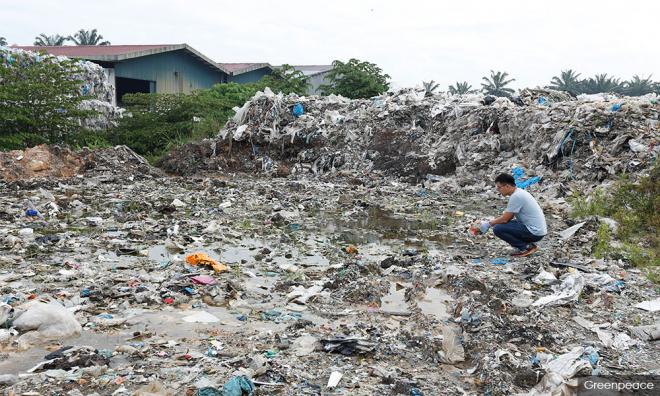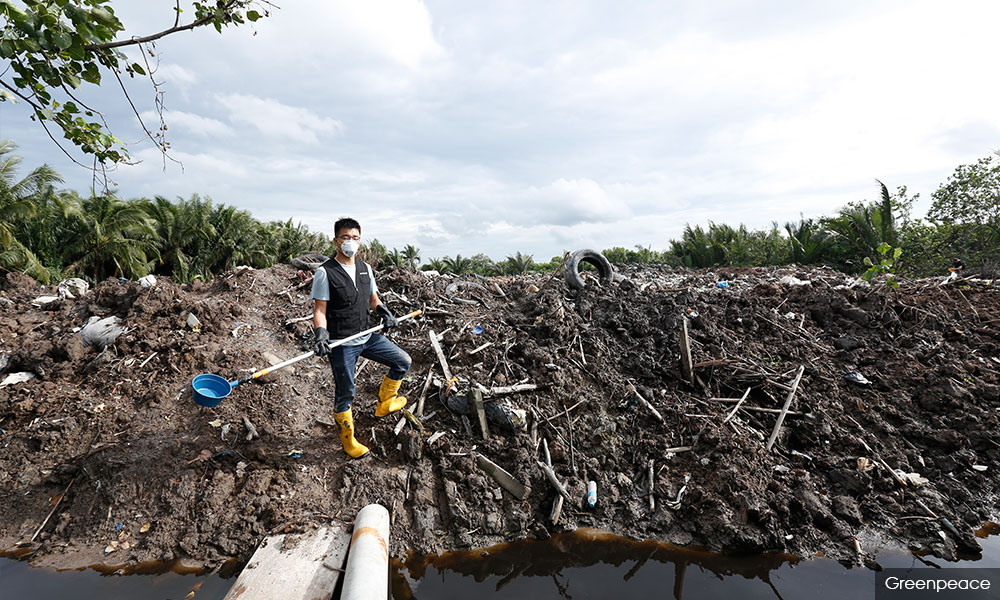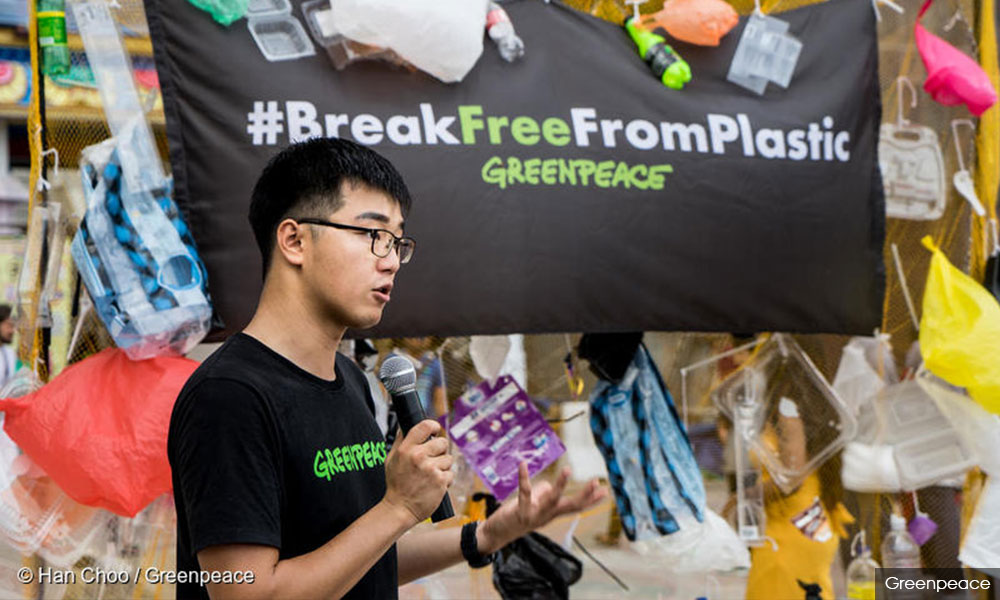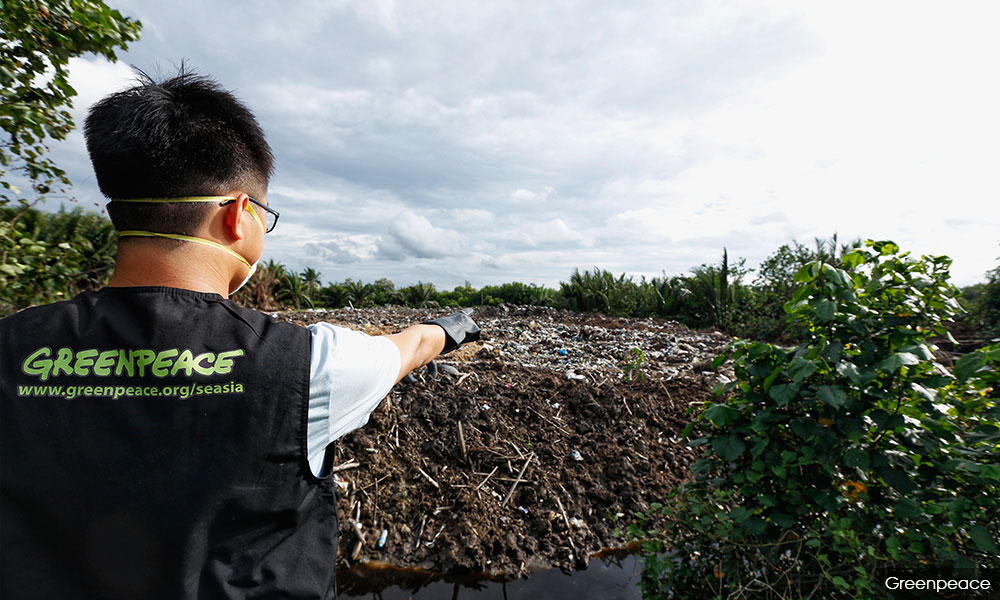
Hazardous materials have been found in soil and water samples taken from several sites previously identified by environmental NGO Greenpeace Malaysia as part of its investigation into imported plastic wastes.
The investigation which involves Greenpeace researchers from Germany and its representative in Malaysia was carried out at three plastic waste dump sites in Selangor - Pulau Indah and Kapar in Klang, Sungai Cheeding in Kuala Langat - and at an unregulated site in Kedah along the Sungai Muda riverbank.
Among the contaminants discovered included heavy metals, polycyclic aromatic hydrocarbons (PAHs), volatile organic compounds (VOCs) and flame retardants (FR).
Greenpeace Research Laboratories senior scientist Kevin Brigden based at the University of Exeter in the UK explained that heavy metals including lead and cadmium could accumulate in a person's body over time.

"The more you are exposed the more it can accumulate in your body," said Brigden who appeared for an online press conference to launch Greenpeace Malaysia's "Recycling Myth 2.0" report today.
According to the report, large areas of the ground at sites where plastic wastes had been burned were found to be composed of shredded plastic instead of soil.
Tests showed that the shredded plastic contained brominated flame retardants as well as high concentrations of heavy metals such as cadmium and lead.
With constant exposure and accumulation, Brigden said lead could cause damage to the brain and the nervous system whereas cadmium could cause damage to an individual's kidneys, lungs and bones.
At sites where it was found that plastic waste had been burnt, Brigden said the burning process actually increased the rate for which the metals get released into the environment.
The contaminants were not only found in material collected from the ground but Brigden noted that copper traces found in water samples were found to be very toxic to not only humans but also wildlife.
As part of its report, Greenpeace Malaysia made several recommendations to the Malaysian government.

Greenpeace Malaysia Campaigner Heng Kiah Chun said these included coming up with an inclusive rehabilitation action plan encompassing health impact studies and in-depth environmental investigations into the affected areas.
"The Ministry of Environment and Water should conduct further environmental investigations into the affected areas, particularly on the risk of leakage of hazardous substances into air, soil and water sources.
"The Health Ministry, meanwhile, should conduct health impact studies and provide healthcare support to affected residents due to the pollution caused by imported plastic waste," said Heng.
He further called on the Malaysian Anti-Corruption Commission to reactivate its Environmental Corruption initiative with specific emphasis on plastic pollution and the corruption related to the management of plastic waste.
Beyond enforcing stricter legislations against environmental crimes, Heng also urged for the enactment of a Freedom of Information Act which would enable stakeholders such as local communities, NGOs and the media to obtain crucial information from local authorities and the federal government on the waste trade.
Greenpeace said it had first visited the identified areas in 2018 after it was found that China's ban on plastic waste imports had led to discoveries of dumpsites - both legal and illegal - in several countries including Malaysia.

Based on his follow-up visit last year, Greenpeace Germany campaigner Manfred Santen said it was clear that the problem had not been resolved though there was a reduction in the amount of plastic waste found.
“Exporting countries like Germany must take responsibility for their wastes. Stronger regulations are needed to drastically reduce the production of unnecessary single-use plastic packaging so waste does not need to be exported in the first place," he stressed.
As of January this year, it was reported that Malaysia had sent back a total of 3,737 metric tonnes of unwanted waste to 13 originating countries including 43 containers to France, 42 to the UK, 17 to the US and 11 to Canada.
It was also reported that Malaysian authorities hoped to send back another 110 containers by the middle of this year. - Mkini



No comments:
Post a Comment
Note: Only a member of this blog may post a comment.